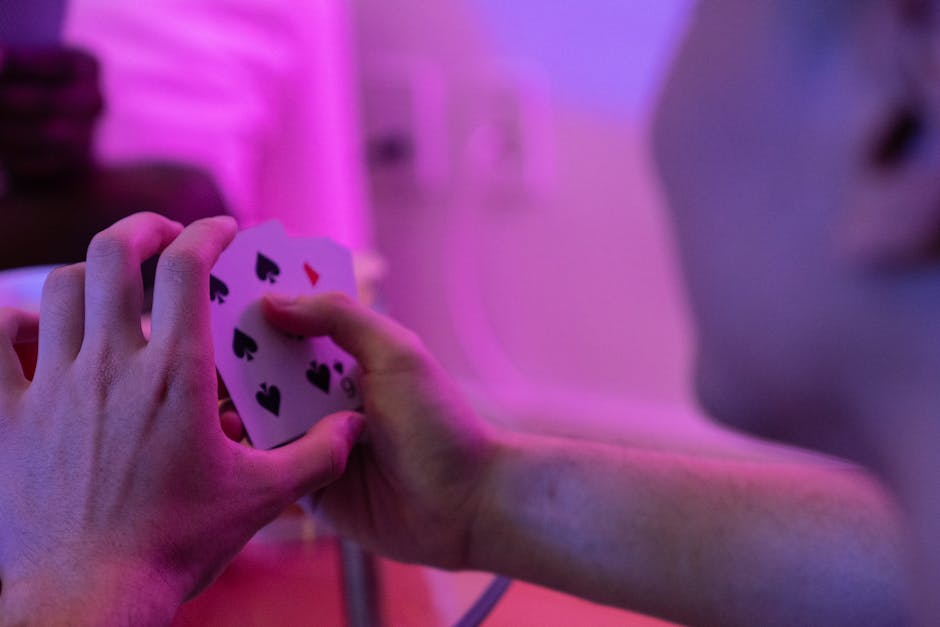Understand the Core of Poker Psychology
Poker isn’t just a card game. It’s a people game disguised as one. The cards set the stage, but the real battle is on the human level who cracks under pressure, who masks their intent, who misreads a signal and pays for it. That’s where the edge lives.
At any given table, you’re juggling logic, emotion, and impulse your own and everyone else’s. People think poker is about math. It is, in part. But it’s also about spotting the player clinging to a bluff out of pride or tossing chips after a loss they haven’t emotionally processed. That internal tug of war shows up in betting patterns, posture, and the way hands hover near the chips.
Most players study hands and odds. Few study behavior. And that’s the blind spot. The guy tapping his fingers only when he hits a strong hand. The one who suddenly gets chatty after folding ten hands in a row. The tension in someone’s shoulders right before they re raise. Subtle tells, repeated habits, mood swings they’re all data points. If you’re paying attention, people will tell you everything you need to know. You just have to listen without waiting to speak or bet.
Read Verbal and Non Verbal Cues
A good poker face isn’t just about staying stone faced it’s about disguising the storm going on underneath. Most players think they’re unreadable. They’re not. Nervous ticks the bounce of a knee, tapping fingers, sudden stillness are micro tells. You’re not looking for drama. You’re looking for the little shifts that say, “Something’s up.”
Watch the breathing. Quick, shallow breaths often mean tension. A deep exhale after a bet might signal bluff relief. And then there’s silence when chatty players go mute, that’s data. They’re thinking harder than usual, or trying not to leak a crack in their story.
Verbal tells can be just as loud. Listen for filler words like “uh,” “you know,” or rambling explanations especially after making a move. People who are telling the truth tend to keep things brief and direct. Liars overlay detail. Bluffers rehearse confidence, and it sounds off.
Context is your measuring stick. If a player who’s been loose and talkative suddenly shuts down post flop, that shift matters. Don’t isolate any cue. Cross check it with betting patterns, previous hands, and personality baseline. Truth and bluff both show symptoms you just have to know what’s normal before you can spot the abnormal.
Use Your Table Image as a Weapon
Your table image is never neutral it’s a story other players are writing about you in real time. Are you loose? Tight? Passive? Aggressive? That perception guides how they’ll react to you, and you can use that to your advantage.
Start by understanding how players are seeing you. Do they fold too easily when you raise? Might mean they think you’re tight. Are they calling light? Maybe they think you’re bluff heavy. Once you know your image, the real trick begins: break it. Shift from tight to loose, passive to aggressive, just when they think they’ve got you figured out.
A quiet player suddenly betting big? That causes tension. A bluffer going quiet? Even more so. Controlled unpredictability gets in people’s heads. It makes them second guess what they thought they knew. You’re not just playing cards anymore; you’re steering their decision making. That’s power.
Switch gears with purpose. Don’t just do it to be flashy do it to take space in their mind. When you create doubt, hesitation follows. Hesitation leads to mistakes. In poker, that’s all you need.
Force Errors Through Pressure

One of the most effective ways to outplay opponents at the poker table is by using pressure strategically. When applied deliberately, pressure not only forces tough decisions but also increases the likelihood of psychological mistakes. The goal isn’t just to challenge their hands it’s to challenge their mental state.
Strategic Aggression: When Pressure Has Purpose
Aggression isn’t just about betting big. Smart aggression is calculated, targeted, and tailored. It’s about applying just enough heat to make your opponent uncomfortable and prone to errors.
Bet or raise consistently when you sense uncertainty
Leverage position to control the action and tempo
Use small but frequent pressure to drain their confidence over time
Psychological Manipulation Through Subtle Tactics
Seemingly minor actions can have a disproportionate mental impact on opponents. Mastering these subtle psychological moves gives you an edge with minimal effort:
Chip stacking tactics: Placing chips in clean towers versus messy piles can signal confidence or create doubt.
Timing bets: Hesitating deliberately or acting quickly can send confusing signals or mimic strength or weakness.
Intentional silence: Holding back speech or reactions makes opponents overthink their own hands and choices.
Break Their Rhythm, Break Their Game
Dating back to classical psychology, humans are pattern seeking creatures. If you can disrupt the rhythm your opponents expect, you rattle their focus and increase potential errors.
Shift from frequent betting to sudden checks or vice versa
Mix up bet sizing in illogical (but calculated) ways
Change your body language intentionally between hands (relaxed one moment, stiff the next)
Strategic rhythm breaks are less about surprising plays and more about disrupting expectation. When rhythm is lost, clarity disappears and that’s when your edge grows.
Recognize and Exploit Tilt
Tilt is what happens when emotion takes the wheel and logic gets locked in the trunk. You’ve seen it: a player snapping at a dealer after a bad beat, jamming all in recklessly, muttering at themselves, or slamming chips down harder than they need to. But tilt doesn’t always shout. Sometimes it leaks out in small ways long sighs, impatient bet timing, over talking, awkward silences, or reaching for chips before the action even gets to them. Once you see these cracks, you can start pressing.
You don’t have to taunt or trash talk to escalate the slide. Subtle nudges are more effective. Take a little longer on your decisions. Float more flops. Put them to the test in spots where they’d usually fold. The point isn’t to humiliate it’s to keep them uncomfortable, second guessing, and off rhythm.
Meanwhile, protect your own mental stack. Recognize your triggers. Bad beats happen. Stupid plays work. Great hands get cracked. That doesn’t entitle you to a meltdown. Breathe, reset, and stay locked on the long game. Let them spiral. You stay sharp.
Outplaying Opponents Long Term
There’s a limit to what memorized strategy can do. You can study charts all day, but real edge comes from adapting on the fly. Poker isn’t static people evolve across sessions, moods shift, fatigue sets in. The players who thrive long term aren’t the ones who recite playbooks. They’re the ones who adjust, who treat every hand like a fresh puzzle with new variables.
That’s where mental note taking becomes a serious weapon. Every raise, hesitation, sigh it all becomes part of the read. Smart players build mini profiles on opponents over time: who tilts easily, who bluffs light on the river, who overvalues top pair. These aren’t just observations they’re tools you reach for when pressure’s up and chips are deep.
Even more powerful: changing gears based on player archetypes. Tight passive? Bully them. Loose aggressive? Set traps. Unfocused rec player? Apply slow, steady pressure. It’s adaptive warfare, not rigid execution.
If you’re playing the long game, psychology isn’t optional it’s survival.
For a deeper dive into proven poker psychology tips, read this guide.
Practice, Reflect, Repeat
Poker isn’t mastered through theory alone. If you’re not carving out time to review your sessions, you’re leaving growth on the table. Start by capturing the psychological side of your play not just hands and chips, but how you felt as you played them. Was your confidence steady? Did tilt creep in? Were you making reads, or reacting?
Journaling helps. After every session, log your mental state, emotional responses, and key outcomes. Write down moments you felt pressure, times you knew you misread someone, and spots where you trusted your gut and got it right. Done consistently, this habit trains self awareness and reveals patterns that pure stat tracking misses.
Don’t expect instant results. Psychology in poker is a long game. You’ll get better at recognizing emotional tells yours and theirs. You’ll see trends in how your mindset impacts risk taking. And over time, this adds up to sharper instincts and stronger reads.
The goal is patience. Reflection builds recognition. Recognition builds intuition. That’s where your real edge forms.

 Danny Stark brought technical expertise to the forefront by designing and optimizing the platform’s architecture to ensure smooth performance. From streamlining user interfaces to implementing responsive features, Danny focused on delivering a fast and seamless experience for visitors across all devices. His work behind the scenes ensured Bet Roll Gamble operates efficiently under high traffic, providing users with uninterrupted access to content and tools.
Danny Stark brought technical expertise to the forefront by designing and optimizing the platform’s architecture to ensure smooth performance. From streamlining user interfaces to implementing responsive features, Danny focused on delivering a fast and seamless experience for visitors across all devices. His work behind the scenes ensured Bet Roll Gamble operates efficiently under high traffic, providing users with uninterrupted access to content and tools.